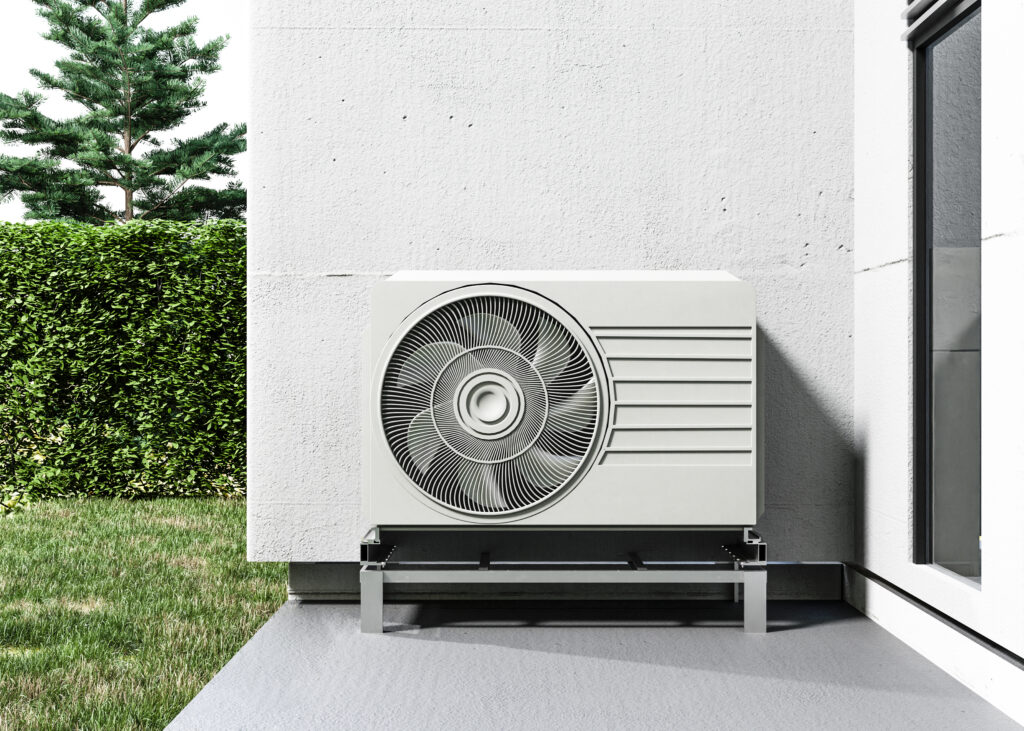A heat pump is a versatile and energy-efficient device that can be used both for heating and cooling purposes. As an air conditioner, it can provide a comfortable and consistent indoor temperature, while also reducing energy consumption and costs. In this essay, we will discuss the benefits of using a heat pump as an air conditioner, including its energy efficiency, cost-effectiveness, environmental friendliness, and versatility.
Energy Efficiency
One of the primary benefits of using a heat pump as an air conditioner is its energy efficiency. Unlike traditional air conditioning systems that rely on electricity to produce cold air, a heat pump uses a small amount of electricity to move heat from the indoor air to the outside environment. This process, known as refrigerant compression, is much more efficient than generating cold air from scratch.
In fact, according to the U.S. Department of Energy, a heat pump can provide up to 3 times more heating or cooling energy than the amount of electrical energy it consumes. This means that using a heat pump as an air conditioner can result in significant energy savings, especially in areas with moderate climates.
Cost-Effectiveness
Another advantage of using a heat pump as an air conditioner is its cost-effectiveness. While the initial cost of installing a heat pump may be higher than a traditional air conditioning system, the long-term savings on energy bills can make up for this difference in just a few years.
Additionally, because a heat pump can provide both heating and cooling functions, homeowners can save money by not having to purchase separate heating and cooling systems. This can also reduce installation and maintenance costs, as there is only one device to install and maintain.
Environmental Friendliness
Using a heat pump as an air conditioner is also environmentally friendly. By relying on refrigerant compression rather than burning fossil fuels, heat pumps produce fewer greenhouse gas emissions and contribute less to air pollution.
Furthermore, because heat pumps use less energy than traditional air conditioning systems, they reduce overall demand for electricity, which can help reduce the need for new power plants and the associated environmental impact. Additionally, many heat pumps use non-toxic refrigerants, which can further reduce their environmental impact.
Versatility
Another advantage of using a heat pump as an air conditioner is its versatility. Heat pumps can be used in a variety of settings, including homes, offices, and commercial buildings. They can also be used in both new construction and retrofit applications, making them a flexible choice for any building or renovation project.
Heat pumps can also be customized to meet specific heating and cooling needs, with different sizes and efficiency ratings available to match the needs of any space. Additionally, heat pumps can be used in conjunction with other heating and cooling systems, such as radiant floor heating or ductless mini-splits, to create a comprehensive climate control solution.
Benefits of Heat Pump Usage in Canadian Climate
The benefits of using a heat pump as an air conditioner are even more pronounced in the Canadian climate, where temperatures can be extreme and energy costs can be high. Here are some additional points on the benefits of heat pump usage in Canada:
- Energy Efficiency in Extreme Temperatures: Heat pumps are capable of operating efficiently in extreme temperatures, making them an ideal choice for the Canadian climate. While traditional air conditioning systems can struggle in very cold or very hot temperatures, heat pumps are designed to provide reliable heating and cooling even when the temperature drops below freezing.
- Cost Savings on Heating Bills: Because heat pumps provide both heating and cooling functions, they can save homeowners money on their heating bills during the winter months. Heat pumps are up to three times more energy-efficient than traditional electric heating systems, which means they can save homeowners hundreds of dollars per year on energy costs.
- Reduced Environmental Impact: In addition to the cost savings, heat pumps are also environmentally friendly, producing fewer greenhouse gas emissions than traditional heating and cooling systems. In a country like Canada, where energy consumption is high and the effects of climate change are becoming increasingly apparent, the use of heat pumps can have a positive impact on the environment.
- Increased Home Comfort: Heat pumps provide consistent heating and cooling throughout the year, making them ideal for Canadians who experience extreme temperature fluctuations. Unlike traditional heating systems that can be slow to warm up, heat pumps provide instant heat, making homes comfortable and cozy in even the coldest temperatures.
- Versatility for Different Homes: Heat pumps can be customized to meet the specific needs of different homes, whether they are new construction or retrofits. There are several different types of heat pumps available, including air-source, ground-source, and ductless mini-splits, each of which can be tailored to the specific needs of a particular home.
- Access to Government Incentives: The Canadian government offers various incentives to encourage the use of heat pumps in homes and businesses. For example, the Home Renovation Rebate Program provides rebates for homeowners who install energy-efficient heating and cooling systems, including heat pumps. Additionally, the federal government offers grants and loans to businesses that invest in energy-efficient technology, such as heat pumps.
- Reduced Dependence on Fossil Fuels: By using a heat pump as an air conditioner, homeowners and businesses can reduce their dependence on fossil fuels, which are a finite resource and a major contributor to climate change. Heat pumps rely on electricity, which can be generated from renewable sources such as wind and solar power.
- Longer Lifespan: Heat pumps typically have a longer lifespan than traditional heating and cooling systems, which means they require less frequent replacement and maintenance. This can save homeowners and businesses money over the long term, while also reducing waste and environmental impact.
Conclusion
In conclusion, using a heat pump as an air conditioner can provide numerous benefits, including energy efficiency, cost-effectiveness, environmental friendliness, and versatility. These benefits are particularly pronounced in the Canadian climate, where heat pumps can provide reliable heating and cooling in extreme temperatures, while also reducing energy costs and environmental impact.
Whether you are building a new home or retrofitting an existing one, a heat pump can provide a reliable, efficient, and customizable heating and cooling solution. With access to government incentives and a longer lifespan than traditional heating and cooling systems, heat pumps are a wise investment for homeowners and businesses looking to save money and reduce their environmental impact.





